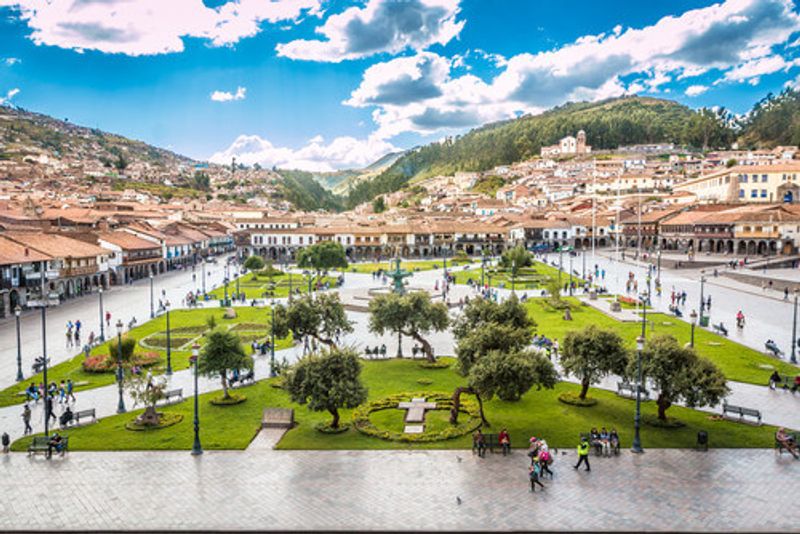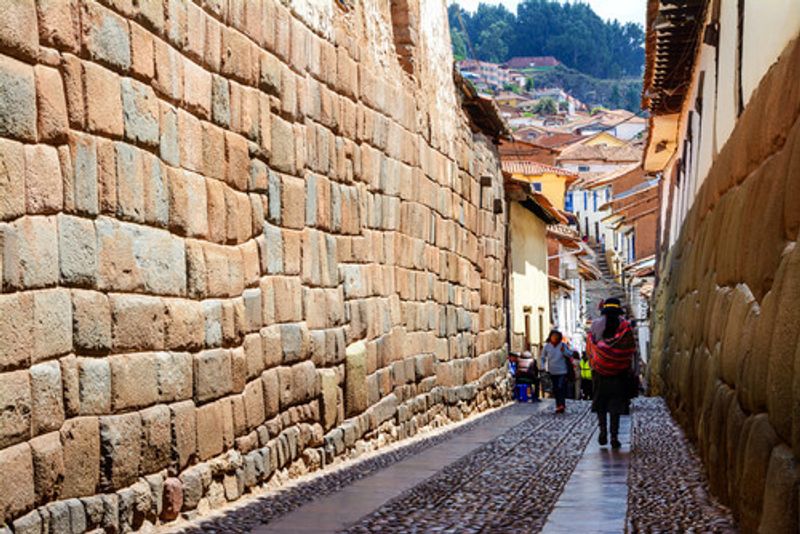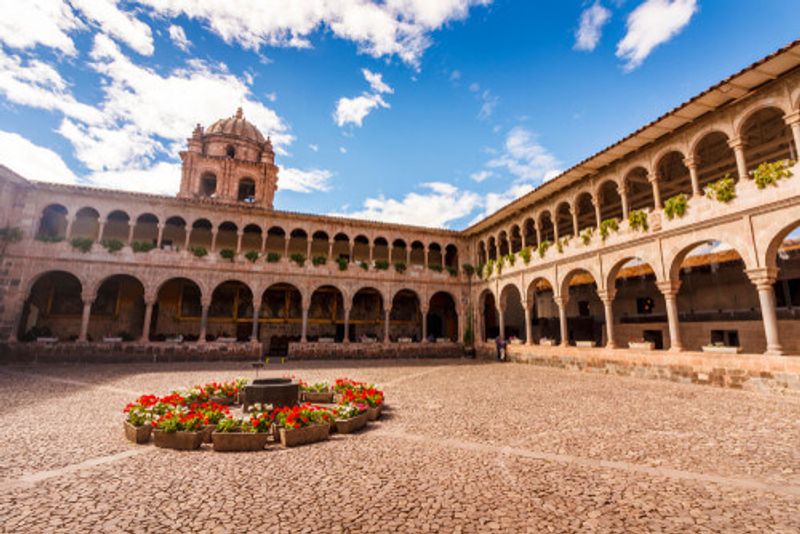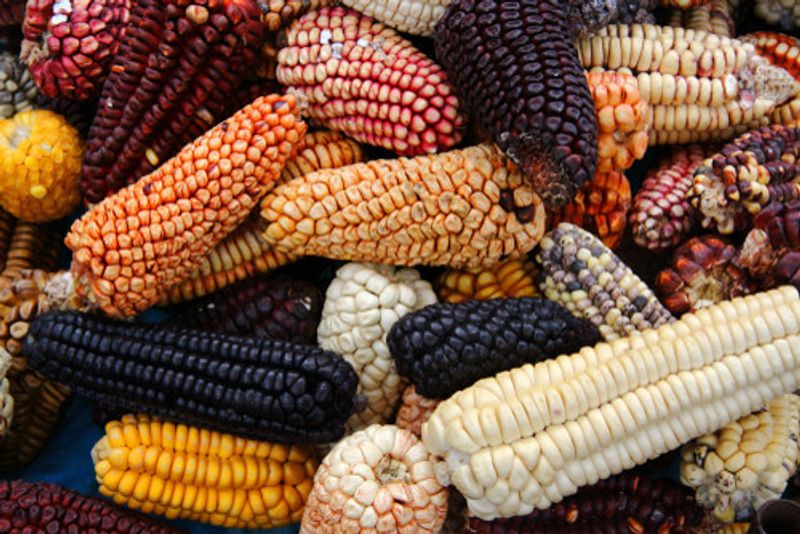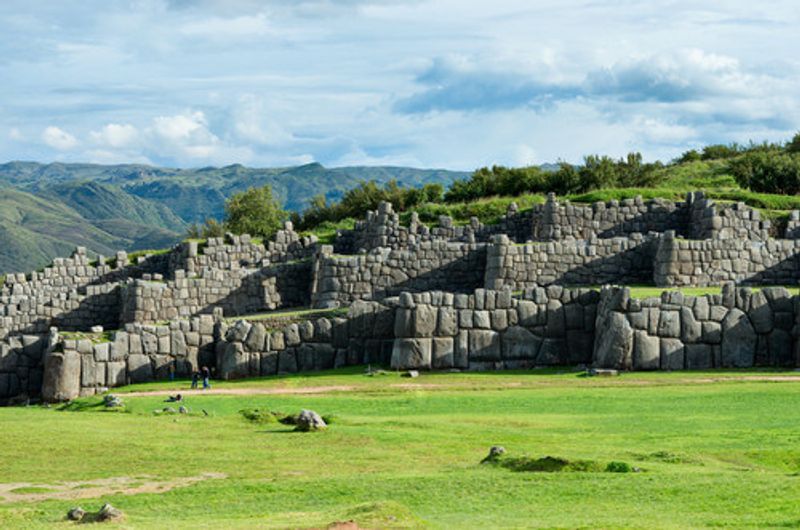Peru’s ancient capital is steeped in history and sacred legend
Once capital of the sprawling Incan empire and indeed the entire Quechua universe, Cusco (or Qosq’o in the local tongue) is Peru’s most revered city. For many centuries, travellers have ventured to the so-called ‘naval of the world’ to learn about the ancient culture that shaped this South American nation. While it’s considered a gateway to the Sacred Valley and the staggering citadel of Machu Picchu, Cusco is a fascinating attraction in its own right. Home to Inca temples, markets, museums and restaurants slinging fine Peruvian fare, you’ll never run out of things to do in Cusco, but you may run out of breath – the city sits 3,400m above sea level, after all.
In the 12th century AD, the son of a sacred deity established the city of Cusco in a fertile Andean valley. Before long, thanks to their organised military, advanced agricultural practices and use of a centralised language, the empire had expanded well beyond the ancient city limits. At its zenith, the vast Tawantinsuyu (meaning realm of the four parts) or Inca state stretched from Quito in Ecuador, right down to southern Santiago, Chile and ruled over 12 million citizens. However, when the Spanish conquistadors arrived in the 16th century, they brought disease and stronger weaponry. Despite outnumbering the invaders, the Incan demise was rapid, and just a few years after the Spanish claimed Cusco, all that remained were remnants of the lost empire.
As far as attractions go, Cusco has something to interest everyone. If you’re into architecture, start your journey at the central Plaza de Armas. Although colonial buildings are the most prevalent, hints of Incan influence are visible throughout the city. The spectacular church of Santo Domingo is one of the most recognisable facades in the city, but beyond its European exterior, the iglesia (church) is better known for its Quechua roots. Before the conquest, the site was home to Coricancha (Qorikancha) – the empire’s most sacred temple, dedicated to Viracocha, the creator god and Inti, god of the sun. Even the stone walls that zigzag around Cusco’s streets were cut and fit like jigsaw pieces by the Incas, so precisely that no mortar was needed to bind them.
For foodies, Cusco is a culinary dream. Taste delicious renditions of all the best Peruvian dishes, from lomo saltado to ceviche, with an ice-cold glass of Inca Kola. Those with strong stomachs should sample an infamous local delicacy – cuy (guinea pig). Although the animal is a household pet in many countries, guinea pig has been consumed in Peru for thousands of years and is farmed like regular livestock. Try it al horno (baked) or chactado (fried). If you’re a fan of street food, save a few soles (Peruvian currency) for a serving of choclo con queso – one of 55 varieties of Peruvian corn, boiled and served with cheese.
While Cusco is one of Peru’s most popular cities, it’s typically a pit stop on the way to the Sacred Valley and the Incan crown jewel: Machu Picchu.
If your time is limited, you don’t have to head out of the city to explore ancient ruins. The phenomenal fortress of Sacsayhuaman is less than 1km from Plaza de Armas and pre-dates the Incas.
